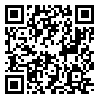Volume 21, Issue 150 (2024)
FSCT 2024, 21(150): 1-15 |
Back to browse issues page
Download citation:
BibTeX | RIS | EndNote | Medlars | ProCite | Reference Manager | RefWorks
Send citation to:



BibTeX | RIS | EndNote | Medlars | ProCite | Reference Manager | RefWorks
Send citation to:
Razavi H. The Inhibitory Effect of Prosopis juliflora Pods Protein Hydrolysate on Polyphenol Oxidase and Browning of Apple Slices During Refrigerated Storage. FSCT 2024; 21 (150) :1-15
URL: http://fsct.modares.ac.ir/article-7-65394-en.html
URL: http://fsct.modares.ac.ir/article-7-65394-en.html
University of tehran , srazavi@ut.ac.ir
Abstract: (1000 Views)
The study was conducted exploit the proteins of the pods of some types of plants, such as Prosopis juliflora pods, that are considered by-products in many countries and considered a good source of protein in the preparation of protein hydrolysers and evaluating their effect on inhibiting brown discoloration of apple slices and compared with anti-browning agents (ascorbic acid, acetic acid, and sodium chloride) when stored in the refrigerator for 0, 5 and 8 days. The chemical composition of the moisture, protein, fat, ash, and carbohydrate of the P. juliflora pods was estimated, then the hydrolysis process was carried out using the enzymes trypsin and papain for 300 minutes. Amino acids and FTIR analysis of protein hydrolysates were determined. Significant changes (p≤0.05) in pH, total soluble solids, and non-significant changes in titration acidity of apple slices treated with protein hydrolysis and anti-browning agents were studied and significantly decreased (p≤0.05) in the activity of polyphenol oxidase until the end of the storage. The brown coloration decreased when treated with protein hydrolysates compared to other treatments, but non-significant changes. As a result, apple slices can be preserved with protein hydrolysers for several days in the refrigerator.
Article Type: Original Research |
Subject:
Antioxidants
Received: 2022/11/12 | Accepted: 2024/04/23 | Published: 2024/06/21
Received: 2022/11/12 | Accepted: 2024/04/23 | Published: 2024/06/21
Send email to the article author
| Rights and permissions | |
 |
This work is licensed under a Creative Commons Attribution-NonCommercial 4.0 International License. |








